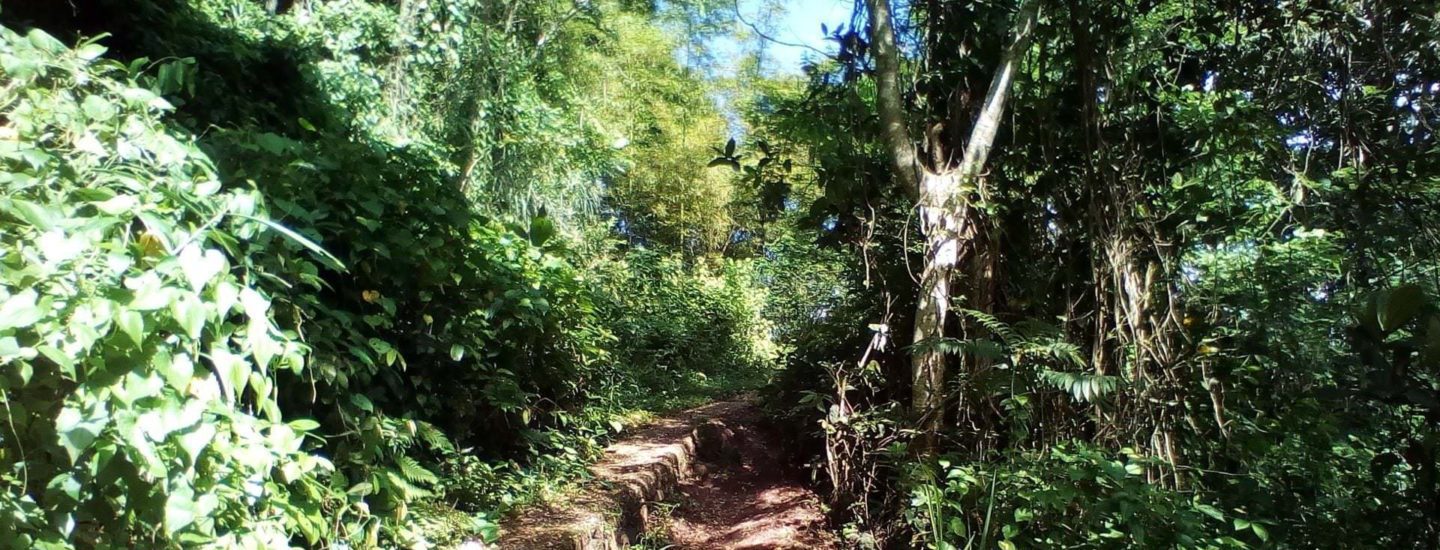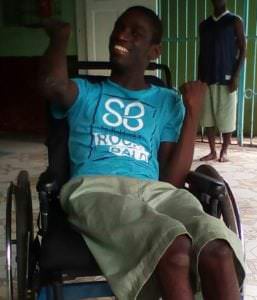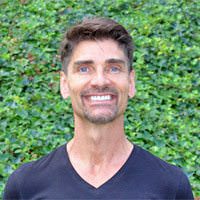Surrendering to the “I Am” in the Womb of the Jungle

Editor’s Note: Current missioner, Tim Shelgren reflects on his experience at Mt. Tabor’s Beatitudes, a home for children who were born with different abilities.
Since coming to Jamaica last February as an FMS missioner, I have spent most of my time serving primary school boys in the city of Kingston. Though I have learned to both tolerate and enjoy city life, I miss the country. Compared to Kingston’s population of over 665,000 people, my home town in Upstate NY has only 13,700. Mostly, I miss the peace and quiet.
Fortunately, last week Br. Moses from Jamaica’s Missionaries of the Poor (MOP) invited me to the country to visit his mission site, Mt. Tabor. Mt. Tabor is located at the top of a mountain. Getting there requires one quick country bus ride, and one stunningly beautiful, steep hike through the jungle. And at the top are not school boys like I have become accustomed to in Kingston. But, there are boys unlike any I have ever seen. I will describe the hike, and the people.
Looking up the steep mountain as I got off the country bus, I wondered how long it would take me to hike to the top. Not that I was worried–I only wanted to assure myself that walking was feasible for future visits. I had already recognized the lack of city noise.
As I walked along on the partially paved and narrow road, the vividly rich, green tropical plants and trees became more and more dense. They seemed to be swallowing me up, and I felt like I was entering into the womb of the jungle.
In that womb, I began spotting small cement block houses, hidden in the bush; brightly-colored shacks alongside the road where people sell goods; and a bamboo bench where people must wait for rides. “Wow,” I said to myself, “it looks like a whole community is hidden up here.” I felt like I was discovering a secret.
Most pleasing of all, about half way up, the continual sound of running water came to me. A significant amount of rain had recently fallen, and all the water was running down the mountain in multiple creek beds. In one spot on the hike, the water was gushing up and over the top of the road, more than four inches deep. When I sat down on a rock to take my sneakers and socks off, I spotted a waterfall to the left of me. I literally heard myself gasp. All the sights and sounds around me… they were extraordinary.
Upon reaching the top, I heard another unexpected sound that reminded me of a choir. But, this choir I was hearing did not sing melodically. The singers groaned. Though ominous, the sound of the groans echoing off the surrounding mountains sounded intriguing to me, and strangely beautiful. “What is next?” I prayed in question.
Walking over the top of the mountain and down the other side a few yards, I found my destination. There was Br. Moses ready to greet me in front of a Jamaican style, one-story, open-air structure called Beatitudes—built into the side of a cliff.
At Beatitudes, MOP houses older boys who were born with handicaps. Most of the boys, about fifteen of them, use wheelchairs. Some are able to sit upright in their chairs, others are in lying down positions. Some are able to make eye contact and make sounds as if to communicate while others are not. Many of the boys’ limbs are twisted and distorted in one way or another. Two boys are blind.
Upon my arrival, Br. Moses was showering the few boys who are able to stand upright, which is a triumph, considering the disabilities that challenge them. The quickest and most pain-free way to handle showers in this environment is with a garden hose in one hand and soapy scrub brush in the other. With the bathers lined up and ready to go, Brother managed the showers while my first job was to help dress the boys.
Piled on the table in the room filled with bunks were dozens of clean, unfolded shirts and shorts. Most of them, to me, looked like they belonged in the garbage. Many were ripped, and some were ripped badly. One at a time, each boy approached the table, let the hired caretaker diaper him (while remaining in a standing position), then had his shirt and shorts put on him. I watched and learned. In ten minutes I was able to relieve the caretaker who proceeded to sweep the now dangerously wet ceramic floors.
What an initiation! I hadn’t even yet processed the sight of the boys’, and there I was diapering and dressing them. I figured out quickly, though, that when human beings cannot speak, diapering and dressing—with the same care you would give a baby—is a good way to connect with, gain trust, and get to know them.
While some of the boys’ abilities mirror those of babies, some have abilities that reflect other developmental stages. And, as the day passed, I had time to play with several of them. We played with a ball, took a stroll (the boys who walk, one with Down Syndrome, love to push their comrades in wheelchairs), and we acted out “The Three Little Pigs.” Later, I read a children’s book to one boy named Shakey.
These few boys participated in the activities as if they knew exactly what was going on. They hit the ball with bent elbows and hands, they laughed when the Big Bad Wolf blew the house in, and they enjoyed winning the races we had on the way back from our stroll. With the day’s activities providing insight into what the boys’ were capable of physically, I began to ask myself, “What is going on in their minds?”
To test my question, I told Shakey during our reading session to point to the rabbit, and to the monkey, for example. He did. I asked him, “What’s this?” as I pointed to the lion. He grunted two syllables that resembled the word “lion.”
Mind you, despite physical/communication challenges, Shakey has the best smile in the world. He looks like a young Denzel Washington. He smiled the whole time we worked together. And he also shook; hence, the name. His head and arms never stop moving. Soon, I will find out if Shakey has a real name. And I, for one, will use that name when I visit him.
I am also curious about the possibility of Shakey learning to read. If his mind is not affected by his physical disability, maybe he could learn to read. In the city, this service is one I am offering to many of the students I work with. I have studied and figured out how to teach phonics. The method works. Despite the fact that I was told during my visit at Mt. Tabor that the boys are “not sensible,” I am going to try to introduce Shakey to phonics. I will start my next visit, which is tomorrow.
To get back to the bottom of the mountain when my visit was over, one of the boys’ caretakers who lives one mountain over showed me a shortcut. No longer traveling the partially paved jungle road, I was now on a dirt path. Totally covered with an umbrella of immense trees, the sounds of the water returned, along with sounds of tropical birds and the groans of the boys’ choir behind me.
Climbing downward, leaving the womb of the jungle, I felt like I was at one with our Creator. I could not figure out how God could design such beauty in nature, and at the same time allow for such challenging physical and mental differences in the human being. So, I had no choice but to surrender my confusion to God, and to absorb myself into the abundance of acceptance that Mt. Tabor’s Beatitudes holds.
At Mt. Tabor, the “I Am” has created a what is that neither Brother Moses, the caretakers, or Shakey and his comrades question. They simply live. I admire the community’s high level of acceptance and cannot wait to go back to learn more from them. I will go without questioning anybody or the “I Am.” But, I will not go without taking my curiosity about Shakey’s reading potential with me. Maybe he is “sensible.”
Reflection Question: How is God calling you to grow in relationship with those in your community who are not in the same physical, mental, or economic situation as you?
Tagged in:


